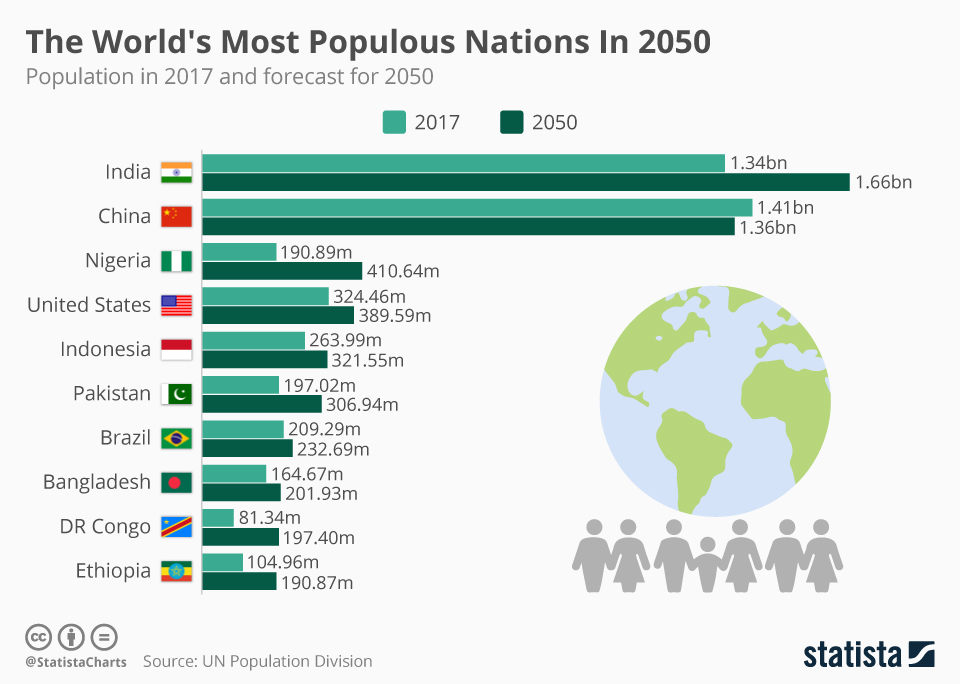NEWS
REVEALED: Countries facing major population decline by 2050

In an alarming forecast for numerous nations, projections show a significant reduction in their respective human populations extending up to 2050.
European countries appear to be most impacted by this prospective decline, with Bulgaria, Lithuania, Latvia, Ukraine, and Serbia leading the ranks.
These unsettling predictions suggest a shrinkage of 22.5% for Bulgaria, the country anticipated to witness the steepest decline. Trailing closely behind are Lithuania and Latvia, where populations are expected to plummet by 22.1% and 21.6%, respectively. Ukraine, meanwhile, is projected to undergo a 19.5% reduction, and Serbia rounds off the top five with a predicted decline of 18.9%.
This pervasive trend extends to the bottom five countries on the list, where the situation remains significant. Georgia, Portugal, North Macedonia, Cuba, and Italy are projected to experience population decreases ranging from 11.8% to 10.1%.
Bosnia & Herzegovina and Croatia are both anticipated to see considerable declines as well, with respective reductions of 18.2% and 18.0%. Moldova, another European nation, follows suit with an expected decrease of 16.7%. The situation in Japan, the only Asian country on the list, is also dire, as the population there is forecasted to decline by 16.3%.
Rounding out the middle of the pack are Albania and Romania, expected to witness population drops of 15.8% and 15.5% respectively. Greece’s population is set to decrease by 13.4%, while Estonia and Hungary follow with reductions of 12.7% and 12.3%, respectively. Poland is also set to experience a significant decline, with a predicted decrease of 12%.
These predictions paint a rather sombre picture for the future of these countries. They provide a clear indication that the issues these nations are grappling with, such as ageing populations, low fertility rates, and mass emigration, need to be urgently addressed. By doing so, these nations can potentially avert these anticipated population declines, maintaining their social, economic, and political stability in the long term.
According to the IMF, in just 30 years, the world will look very different. Since 1950, the global population has grown from 2.5 billion to more than 7.7 billion. By 2050, however, that number is projected to reach just 9.7 billion.






